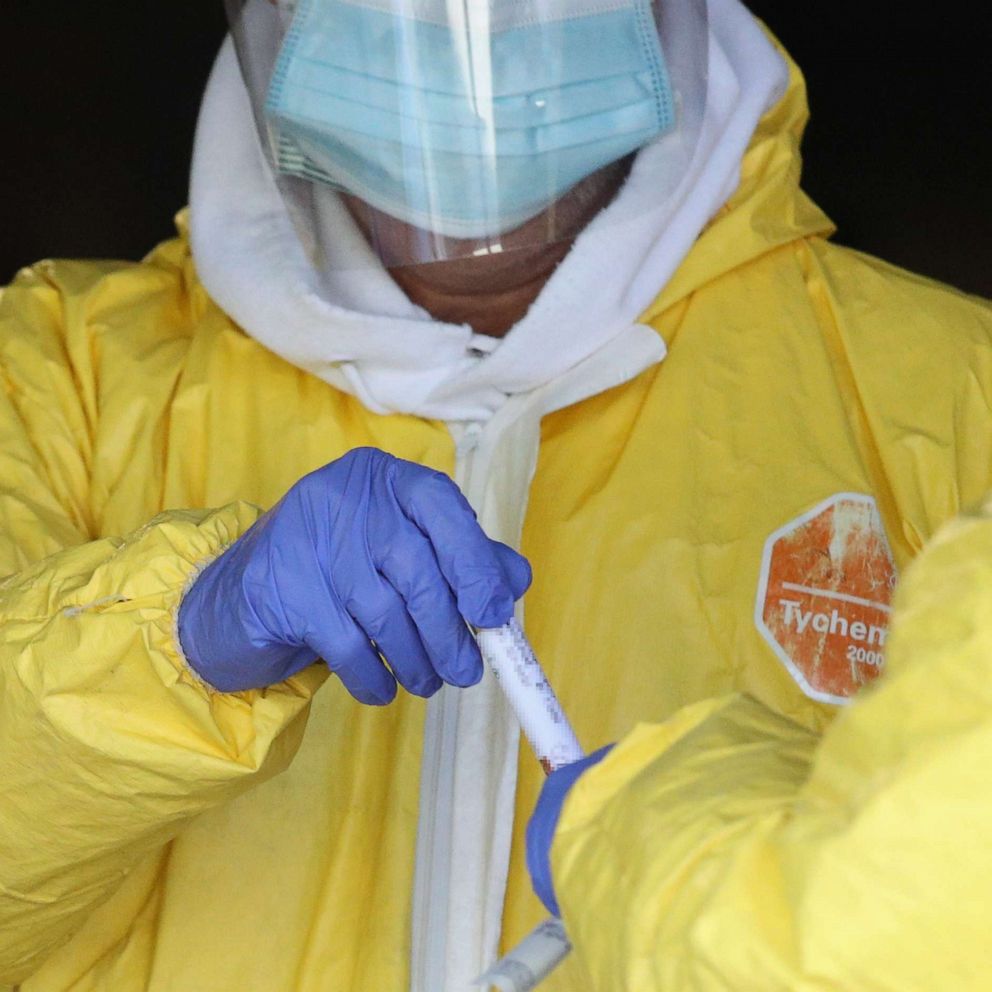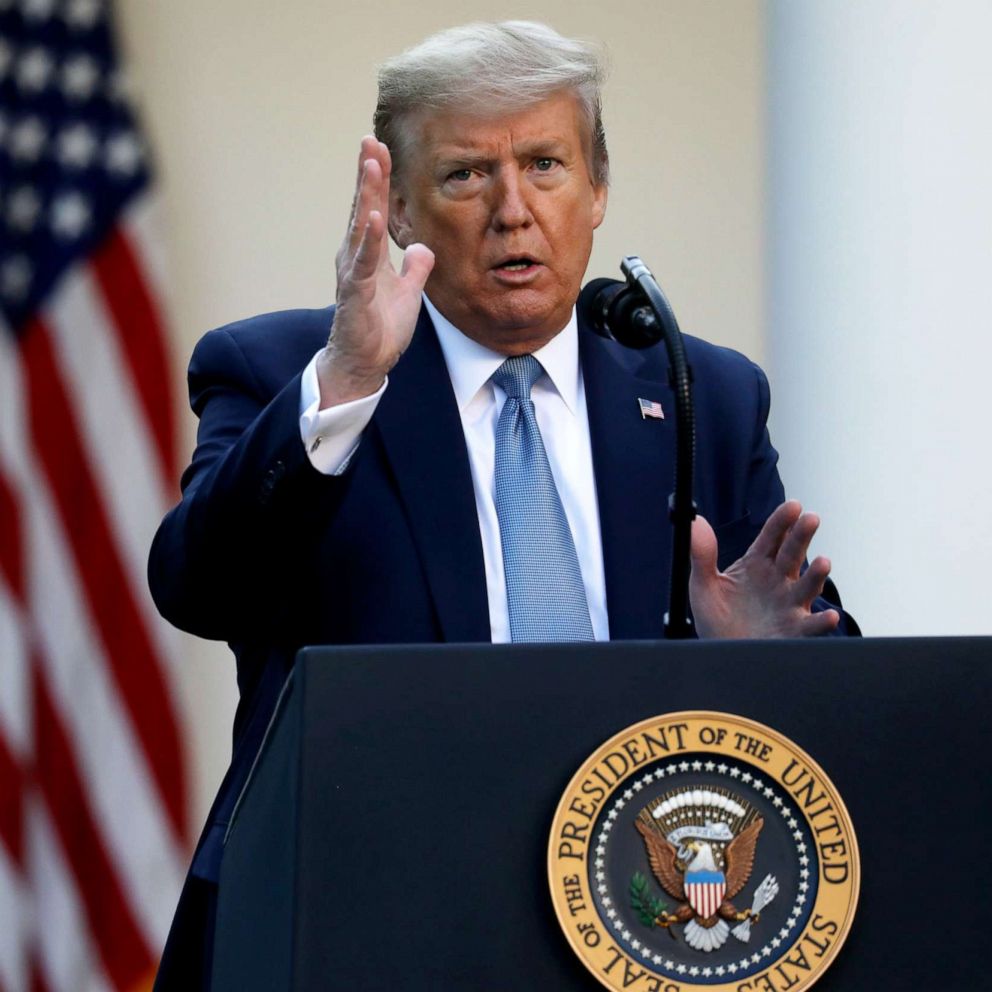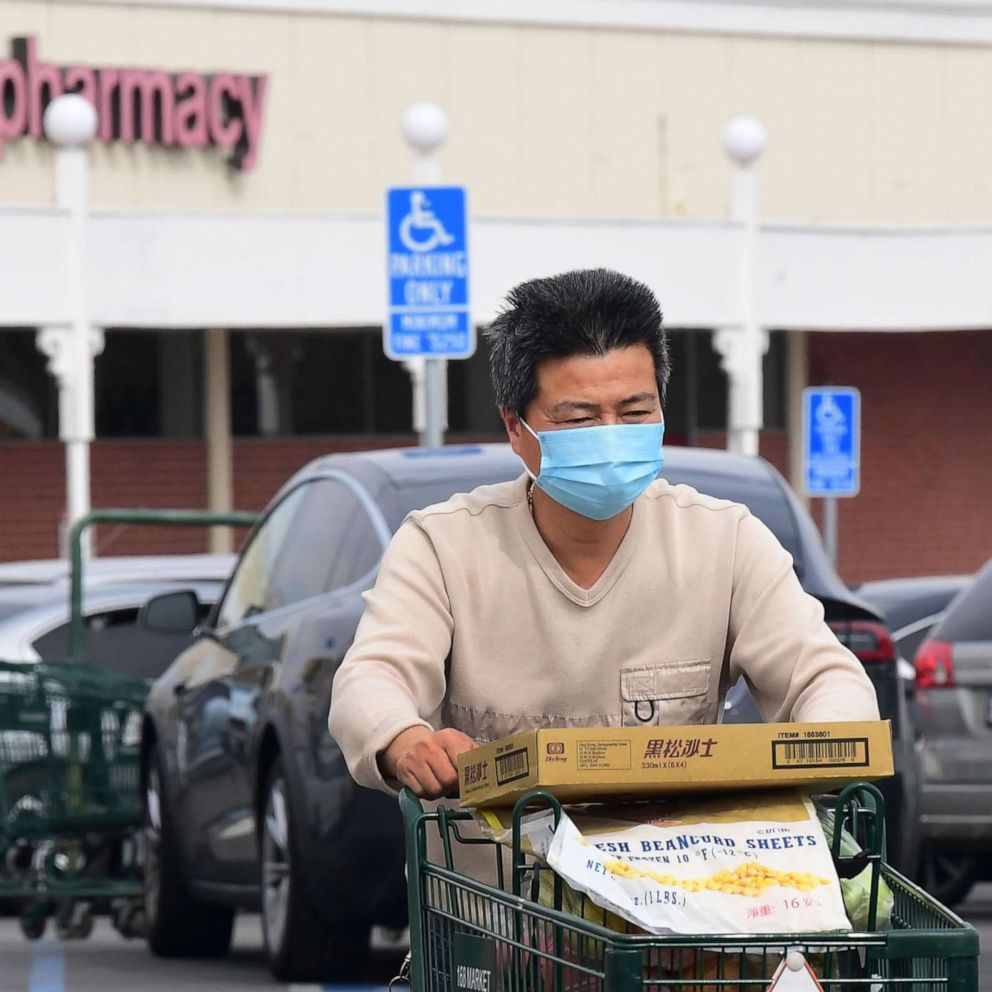Why screening for fevers won't be enough to catch coronavirus cases
Experts: Not everyone with coronavirus has a fever, and vice versa.
As company leaders and government officials look to reopen the economy, one of the safety measures frequently touted is temperature screening to track fevers, a common symptom of coronavirus infections. But some experts say checking for fevers is unreliable and, on its own, could even be deceiving as means of determining who is or is not infected with the disease.
"The absence of an elevated body temperature is not a seal of approval," Dr. Fred Jacobs, a pulmonologist and former commissioner of the New Jersey Health Department, told ABC News. "The answer is not temperature. The answer is testing."
Around the world, thermometers have become one of the ubiquitous signs of the times as temperature checkpoints have been established at all manner of sites, from polling places in in South Korea to the gates of Shanghai Disneyland. From Walmart to Walgreens, people are being checked as they enter to see if their temperatures are elevated above the norm.
In New York, FEMA has already placed an order for 14,000 thermometers, according to documents reviewed by ABC News, as the country's largest city takes baby steps on the road to letting people begin the process of emerging from social isolation in their homes.
Even at the White House, members of the press must undergo temperature checks if they are in close proximity to the President Donald Trump or Vice President Mike Pence. And Trump's White House Coronavirus Task Force Thursday said temperature screening could be used by employers as they begin to get their workplaces up and running.
But for all those efforts, the coronavirus can spread in absence of a fever, as New York Gov. Andrew Cuomo noted during a briefing this week.
"It just takes one staff member who didn't have a temperature but did have the virus to walk in," Cuomo said. "And now you're going to have a serious problem."
Tune into ABC at 1 p.m. ET and ABC News Live at 4 p.m. ET every weekday for special coverage of the novel coronavirus with the full ABC News team, including the latest news, context and analysis.
Dr. Anthony Fauci, director of the National Institute of Allergy and Infectious Diseases, recently said his "guesstimate" was that people who were "relatively asymptomatic" – people who are carrying the virus but show few or no symptoms – could account for anywhere from 25% to 50% of all COVID-19 cases.
And when a fever does appear, it likely means the person has been infected for days already.
"Evidence is suggesting that in the median cases, fever presents on day five, but can happen at any point between day two and day 14 after exposure," said Dr. Jay Bhatt, an internist and former medical chief at the American Hospital Association.
Bhatt, also an ABC News medical contributor, cited a new study from Nature Medicine that was conducted in China and suggests that two or three days before a patient displays visible symptoms -- like a fever or cough – that person is most infectious. Another recent study had similar findings: those infected with COVID-19 shed "large quantities of the virus early in their illness."
Those studies and others looking at temperature screening at airports suggest that up to half of those infected might just slip right by, Bhatt said.
There's also the problem of fevers not being a symptom exclusive of the coronavirus -- meaning many people flagged at temperature screenings may be incorrectly singled out.
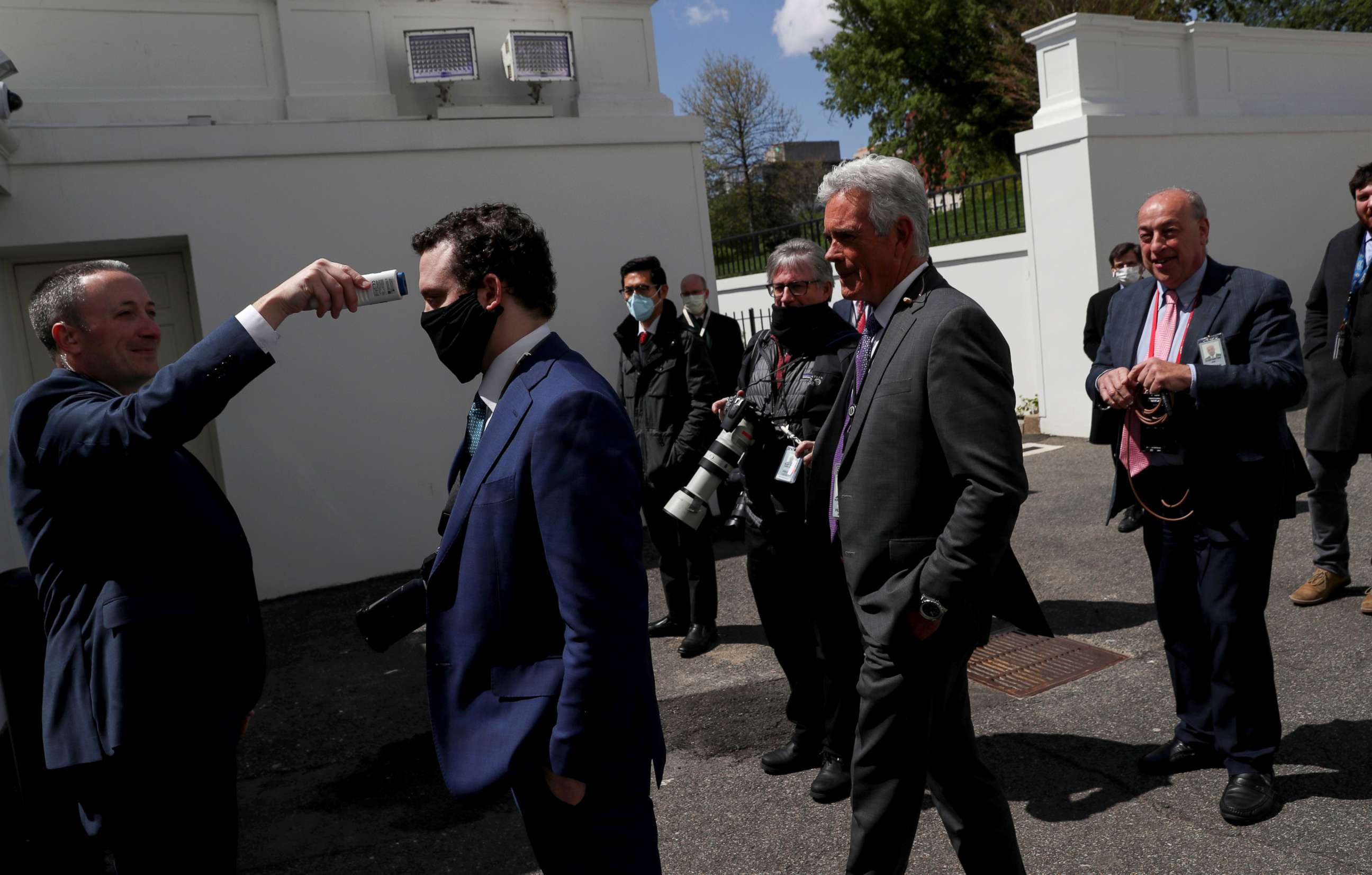
Bhatt explained that a fever is generally defined as a body temp above 100.4 degrees, typically occurring when a body is fighting off infections caused by viruses or bacteria. Like shortness of breath and gastro-intestinal problems, fever is one of the more common early symptoms of COVID-19. But it's also a symptom of everything from a head cold to appendicitis.
Finally, another concern for public health experts is the potential for people knowingly or unknowingly infected with COVID-19 to take medications like Tylenol, which reduce fever, making them harder to spot in screenings.
"People want to go to work, they want to go shopping; not because they want to intentionally hurt anybody, but in fact that's what they're doing," Jacobs, the pulmonologist, said.
Some business leaders say they're well aware that temperature checks alone aren't enough, but it's at least one precaution they can take as they consider cautiously opening back up before universal testing is available.
Neil Bradley, executive vice president at the U.S. Chamber of Commerce, said that there "is no foolproof way" to tell if someone has the coronavirus or not, but he said a lot of business are following the lead of state and local governments.
The chamber, which represents over 3 million businesses, said members are reporting that temperature screenings and social distancing will be paramount among protocols once they re-open.
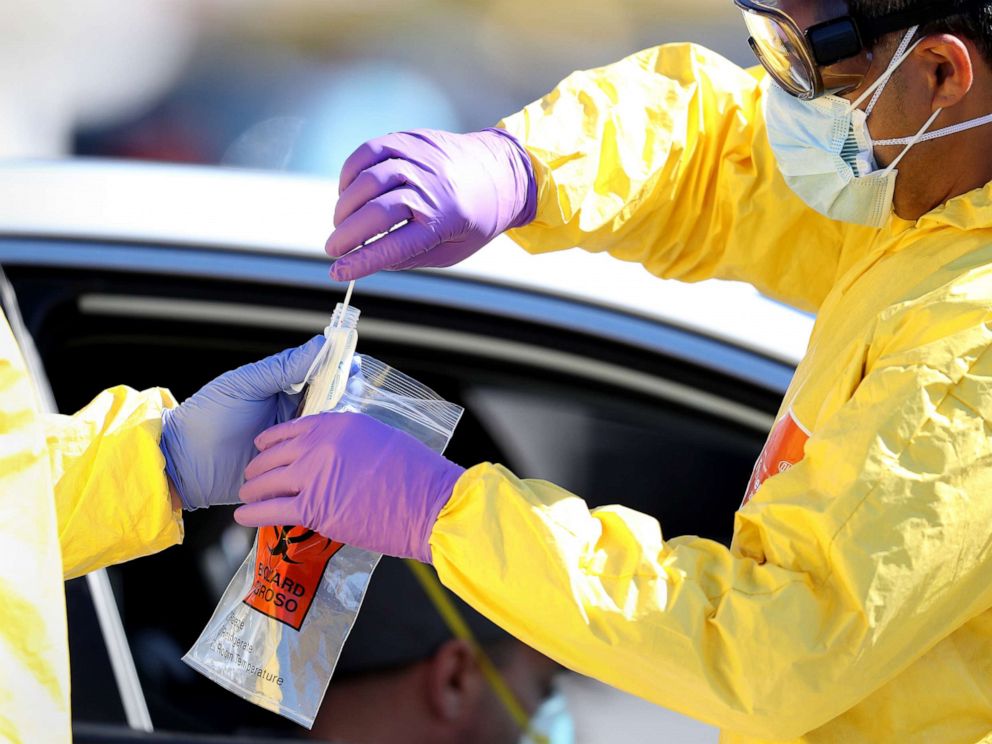
At the General Motors plant in Kokomo, Indiana, where the assembly line has shifted from auto parts to ventilators, employees are required to answer a self-questionnaire about their health symptoms, wash and sanitize their hands and undergo a temperature check as soon as they enter the plant.
"This is a test scenario, to see how these protocols are working," said Brian Rothenberg, a spokesperson for the automobile worker union UAW.
The UAW, along with the "Big Three" car companies, are working together to establish a set of screening standards so car manufacturing can restart. Fiat Chrysler has already announced the intention to restart production by May 4, and one of the screening methods the company is using is temperature checks, according to a spokesperson.
In the empty skies, flight attendants are reportedly undergoing temperature screenings. But Sara Nelson, president of the Association of Flight Attendants, said she can't confirm that screenings occur with every airline and certainly not before every flight.
Nelson, whose union represents 50,000 flight attendants working for 20 airlines, said, "We're also very aware, this is not a foolproof method. Temperature checks are not going to cut it when this virus is being spread by people who are asymptomatic."
What to know about coronavirus:
- How it started and how to protect yourself: Coronavirus explained
- What to do if you have symptoms: Coronavirus symptoms
- Tracking the spread in the U.S. and worldwide: Coronavirus map
Experts agree, and said that while temperature screening could be one of several measures used to reopen the economy and help keep the public safe, it can't be the only thing. For that, mass testing is a must.
"We need antibody testing, contact tracing, and use of remote monitoring in those at risk to feel more comfortable about returning back to work and the new normal," Bhatt said.
